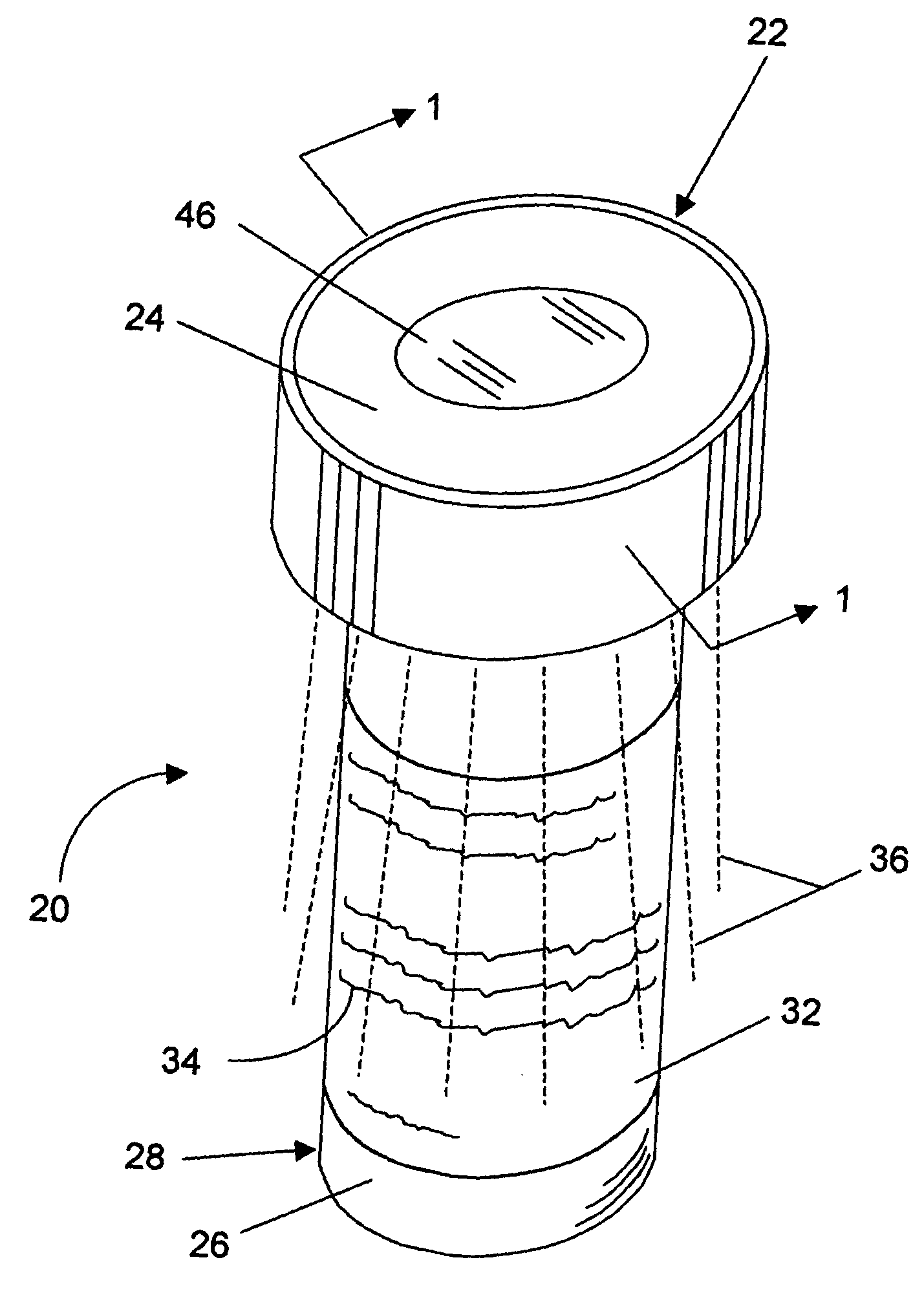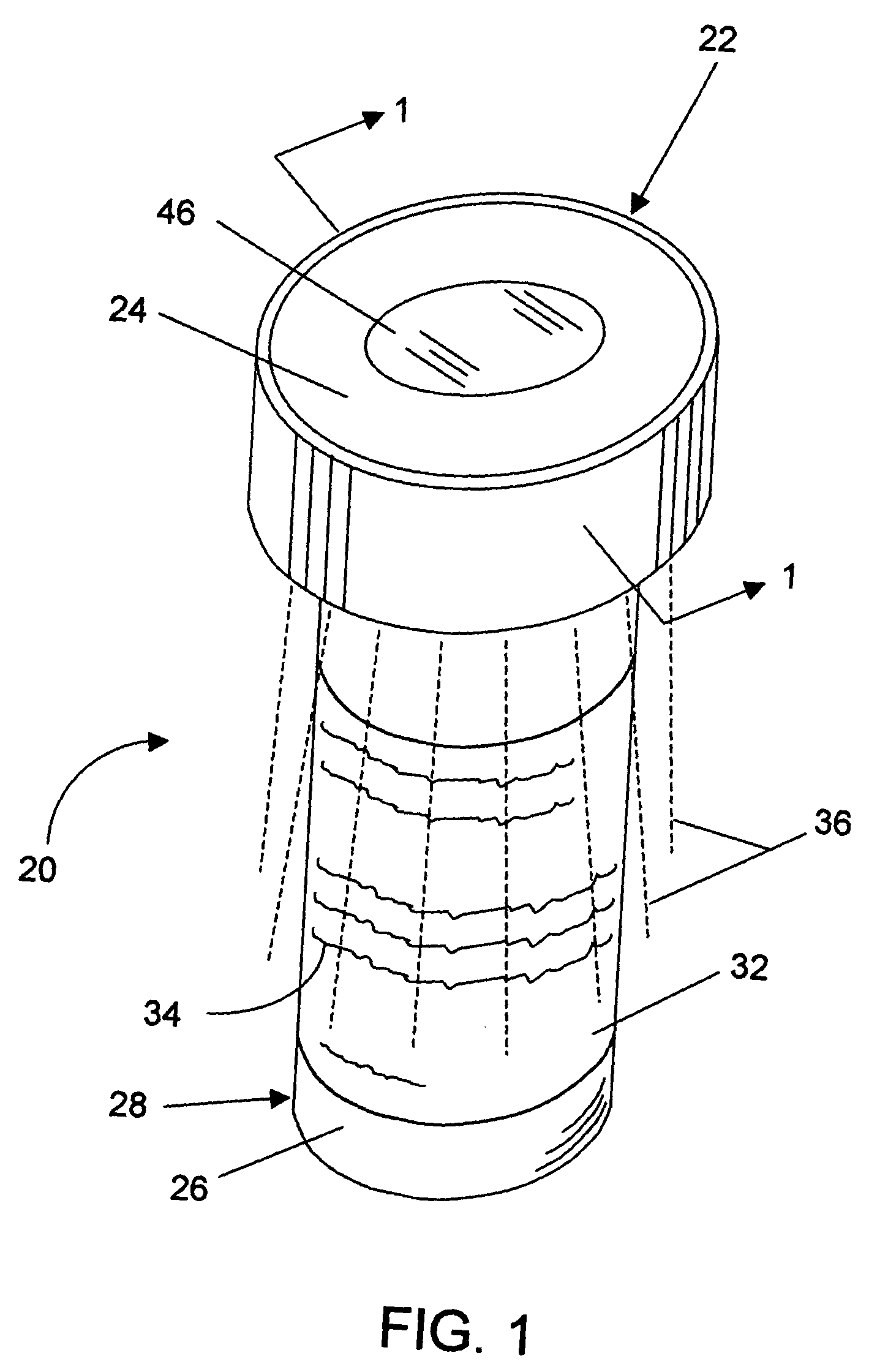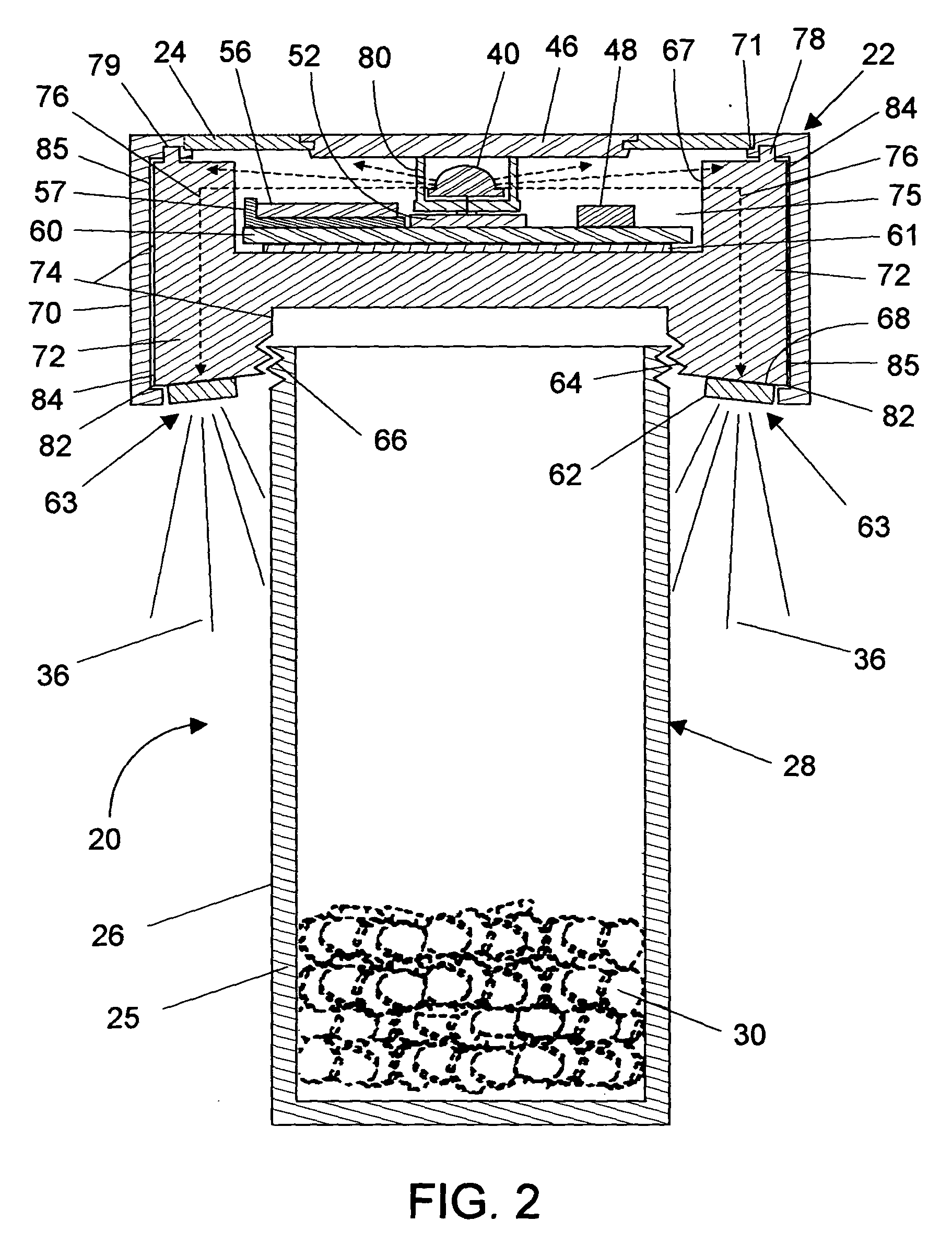Self-contained illumination device for medicine containers
a self-contained, container technology, applied in the direction of containers, semiconductor devices for light sources, light and heating apparatus, etc., can solve the problems of increasing the chance that the individual will take the wrong medicine or dosage, groggy and sometimes disoriented, further pain and disorientation, etc., to achieve convenient and efficient manufacture and marketed, and durable and reliable construction
- Summary
- Abstract
- Description
- Claims
- Application Information
AI Technical Summary
Benefits of technology
Problems solved by technology
Method used
Image
Examples
second embodiment
[0057]FIGS. 10 through 15 illustrate a medicine container, generally 100, embodying a container cap, generally 102. Medicine container 100 also includes a container receptacle 28 and a container label 32, both preferably identical to those described in detail above.
[0058] Container cap 102 is comprised of an annular supporting structure 144 having a cavity 148 into which is fitted a printed circuit board 120. Thus, printed circuit board 120 is contained within container cap 102 and is preferably positioned perpendicular to the longitudinal axis of attached container receptacle 28. Printed circuit board 120 is secured in cavity 148 to annular supporting structure 144, preferably by adhesive 61, such as AS-124M removable adhesive, available from Adhesives Research, Inc., although other securing methods may be used. Annular supporting structure 144 also contains an annular receiving ledge 116 to accept container cap insert cover 24. Container cap insert cover 24 is connected to annular...
third embodiment
[0062]FIG. 16 illustrates a medicine container, generally 200, embodying a container cap, generally 204. Medicine container 200 also includes a container receptacle 28 and a container label 32, both preferably identical to those described in detail above. In this embodiment electrical switch 52 has been moved to the side of container cap 204 just beneath a side-mounted flexible membrane material 212 attached to a container cap side 214. A container cap insert cover 208 is connected to container cap 204 either by a frictional fit or by an adhesive, e.g., silicone rubber. Container cap 204 has internal structure, similar to that described in detail above, in order to enclose and support the appropriate printed circuit board and components.
[0063] The third embodiment of the invention shown in FIG. 16 utilizes the same functional principles as above, but operates in a slightly different manner. The individual holds medicine container 200 in such a way that at least one digit of his hand...
eighth embodiment
[0072]FIGS. 21 and 22 illustrate the invention using a medicine container, generally 400, embodying a container cap, generally 404, a conventional container cap 408, and container label 32 attached to container receptacle 28, both preferably identical to those described in detail above. In this embodiment container cap 404 is removably coupled to conventional container cap 408. Container cap 404 is similar to container caps 22, 102, 204 described above with respect to illumination and control of illumination, but the structure used for attachment to container receptacle 28 is adapted to allow container caps 22, 102, 204 to attach directly to conventional container caps 408, which are currently supplied with medicine containers. That is, container cap 404 is removably connected to conventional container cap 408 at junction 416 by a frictional fit or by an adhesive, e.g., silicone rubber or AS-124M removable adhesive, available from Adhesives Research, Inc.
[0073] The eighth embodiment...
PUM
 Login to View More
Login to View More Abstract
Description
Claims
Application Information
 Login to View More
Login to View More - R&D
- Intellectual Property
- Life Sciences
- Materials
- Tech Scout
- Unparalleled Data Quality
- Higher Quality Content
- 60% Fewer Hallucinations
Browse by: Latest US Patents, China's latest patents, Technical Efficacy Thesaurus, Application Domain, Technology Topic, Popular Technical Reports.
© 2025 PatSnap. All rights reserved.Legal|Privacy policy|Modern Slavery Act Transparency Statement|Sitemap|About US| Contact US: help@patsnap.com



